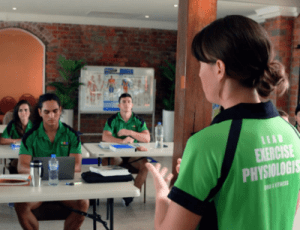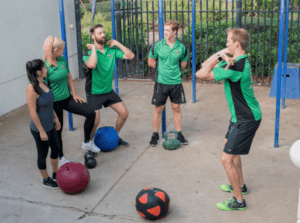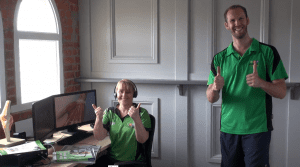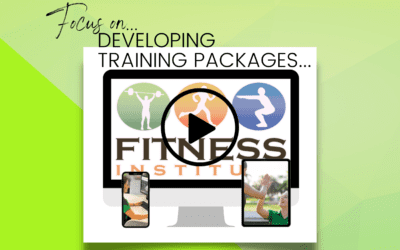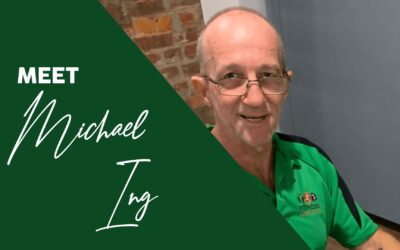So, you’ve achieved a lot in your Sport, Fitness and Recreation career – you’ve overcome challenges, worked hard, collected an incredible library of stories to share, honed your craft, attended lots of courses and conventions, met many amazing, inspiring people, developed resilience and learned lots and lots of personal and professional lessons….
Perhaps you’ve earned a Diploma level Sport, Fitness and Recreation qualification or higher, like an Exercise Science degree and you’re looking for a pathway into the education space.…
Or maybe you’re just getting started in your fitness career and have found coaching and developing others and working in the personal training and education sector is the ideal career path for you!
So, what now?
It might time to consider becoming a Trainer and Assessor!
Why become a Trainer and Assessor?
Trainer and Assessor roles offer a world of possibilities and can be either a rewarding full-time career path or serve as the perfect side hustle or small business to complement your current career and raise your industry profile.
These roles incorporate a wide range of skill-sets, from presenting, coaching and mentoring to researching, course development, and professional writing.
No matter your natural skill-set or career goals, there’s a pathway for everybody!
Plus there’s no shortage of career opportunities, now and into the foreseeable future!
The Australian sport, fitness, and recreation industries are experiencing significant growth and this signals an increasing need for qualified staff, industry-specific education, and knowledgeable educators as well!
And also, many Training Organisations today, like the Fitness Institute, allow their training and assessment teams the flexibility to work from home and this is a pretty amazing option….
So, what do you need to become a Trainer and Assessor?
Number one is the right qualifications, so the study is required – there’s just no way around that we’re afraid.
Number two is a focus and the right outlook. You need to have a genuine interest in developing others and yourself and learning new things. A positive, curious nature and a focus on both the big picture and small detail is also helpful when studying, preparing lessons, working to deadlines, meeting expectations as well as communicating with stakeholders and students.
Number three is organizational and problem-solving skills – prioritize, have a plan and an expected outcome……
What is a Registered Training Organisation then?
Registered Training Organisations (RTOs) work in the Vocational Education and Training (VET) system which is well regulated. Vocational training is competency-based and focuses on occupational and employment outcomes.
To meet compliance requirements, the Trainers and Assessors RTO’s employ must:
- Have current industry skills and hold vocational competencies relevant to the training and assessment required
- Have current knowledge and skills in vocational training i.e. the most recent Certificate IV in Training and Assessment
- Undertake relevant professional development
More information on VET Trainer and Assessor requirements is available on the Australian Skills Quality Authority (ASQA) website.
What do I need to be a Trainer and Assessor of the Fitness Training package?
The assessment requirements of each industry training package and competencies differ. In the fitness training package, if you are assessing Certificate III, you will need Certificate IV in Fitness and if you are assessing the Certificate IV in Fitness, you will need the Diploma of Fitness or higher, like a Bachelor of Exercise Science for example.
What do I learn in a Training and Assessment qualification?
Training packages are designed in consultation with the industry they are designed for. These days, the training and assessment qualification, like the fitness training qualifications, has a broad scope that prepares learners for many of the areas of expertise employers may require.
The one elective unit can vary depending on which the RTO is offering, but the nine core subjects of the 40116 – Certificate IV in Training and Assessment are:
- Plan assessment activities and processes
- Assess Competence
- Participate in Assessment validation
- Design and Develop assessment tools
- Plan organise and deliver group based learning
- Plan, organise and facilitate learning in the workplace
- Design and develop learning programs
- Use training packages and accredited courses to meet client needs
- Address adult language, literacy and numeracy skills (LLN)
See the training.gov website for more information.
If you’re ready to take your Fitness career next level, the team at the Fitness Institute recommends becoming a Trainer & Assessor!


